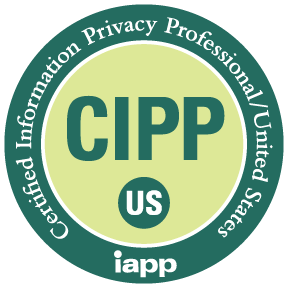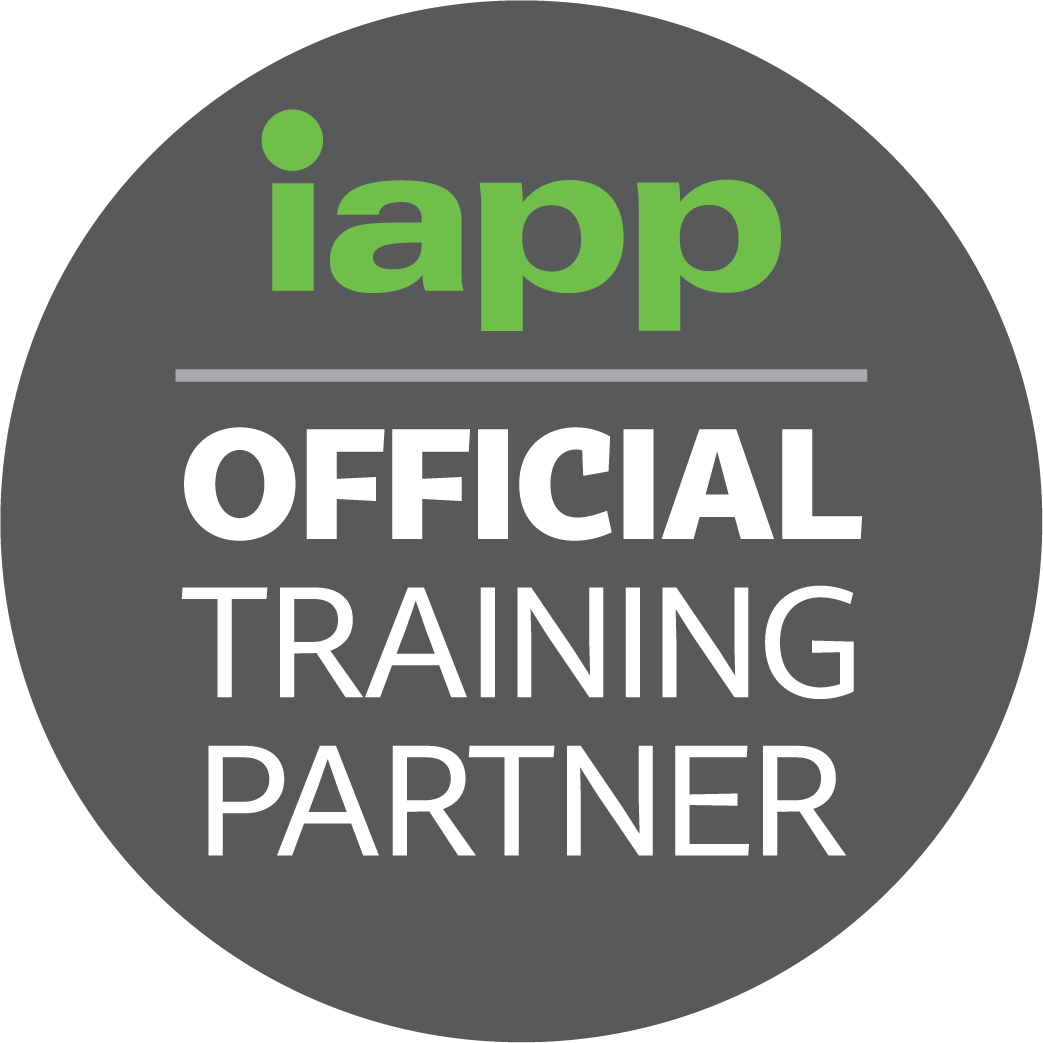
In business, personal data is a valuable asset. Every day it is being accessed, shared, managed, and transferred by people within your organization - in all departments and at all levels. Unless you have a solid plan accounting for the considerations and challenges involved in managing personal data, you risk a data breach, diminished customer trust, and possible enforcement action.
UNH Professional Development & Training has partnered with IAPP to provide training to meet your privacy program goals of reduced risk, improved compliance, and enhanced brand loyalty.
 US Private-Sector Privacy (CIPP/US Exam Prep) covers United States privacy laws and regulations at federal and state levels, including breach notification and limits on various private sectors. Participants will gain an understanding of the legal requirements for the responsible handling and transfer of personal data within industry and workplaces, including government access to private-sector data.
US Private-Sector Privacy (CIPP/US Exam Prep) covers United States privacy laws and regulations at federal and state levels, including breach notification and limits on various private sectors. Participants will gain an understanding of the legal requirements for the responsible handling and transfer of personal data within industry and workplaces, including government access to private-sector data.
The training program is based on the body of knowledge for IAPP’s ANSI-accredited Certified Information Privacy Professional/U.S. (CIPP/US) certification program and offers a robust opportunity to learn about critical privacy concepts that are also integral to the CIPP/US exam. While not purely a “test prep” course, this training is appropriate for professionals who plan to certify, as well for those who want to deepen their privacy knowledge. Both the training and the exam are based on the same body of knowledge.
CIPP/US is the global standard for the go-to person for privacy laws, regulations and frameworks
Here are our top five reasons why IAPP certification and training are sure to advance your organization.
- The CIPP is the global industry standard for professionals entering and working in the field of privacy.
- Achieving a CIPP/US credential demonstrates understanding of a principles-based framework and knowledge base in information privacy within the U.S. context.
- You’ll be recognized as part of an elite group of knowledgeable, capable and dedicated privacy and data protection practitioners.
- Holding a CIPP/US designation elevates your leadership profile among your colleagues.
- The CIPP/US is a key benchmark among top employers for hiring and promoting privacy professionals.
Program enrollment includes: Digital copy of the course textbook; Voucher to sit for the CIPP/US certification exam; 1 year IAPP membership.
Important Notice: This is a self-paced online program. Enroll anytime. Dates listed in the ENROLL NOW section indicate the potential start date, not completion date. Once registered, you will be contacted with the information to begin the program.
Contact Stacey Boyle stacey.boyle@unh.edu with questions.
You might also be interested in:
|
01 Jul 2024 to 30 Jun 2025
|
|
|
1495.00
Workshop Fee
|
|
| 13 | |
|
USNH Tuition Benefit Discount
10% Alumni Discount
UNHOCE Discount
|
|
| 1.3 | |
| PDT-BusPP-01 | |
| 224408 |
CIPP/US
– The global standard for the go-to person for privacy laws, regulations and frameworks
Here are our top five reasons why IAPP certification and training are sure to advance your organization.
- The CIPP is the global industry standard for professionals entering and working in the field of privacy.
- Achieving a CIPP/US credential demonstrates understanding of a principles-based framework and knowledge base in information privacy within the U.S. context.
- You’ll be recognized as part of an elite group of knowledgeable, capable and dedicated privacy and data protection practitioners.
- Holding a CIPP/US designation elevates your leadership profile among your colleagues.
- The CIPP/US is a key benchmark among top employers for hiring and promoting privacy professionals.
Module 1: Introduction to Privacy
- Discusses the modern history of privacy, an introduction to personal information, an overview of data protection roles and a summary of modern privacy frameworks
Module 2: Structure of U.S. Law
- Reviews the structure and sources of U.S. law and relevant terms, and introduces governmental bodies that have privacy and information security authority
Module 3: General Data Protection Regulation Overview
- Presents a high-level overview of the GDPR, discuss the significance of the GDPR to U.S. organizations, and summarizes the roles and responsibilities outlined in the law
Module 4: California Consumer Privacy Act of 2018
- Presents a high-level overview of the newly passed California Consumer Privacy Act of 2018, including scope, consumer rights, business obligations and enforcement
Module 5: Enforcement of U.S. Privacy and Security Laws
- Distinguishes between criminal and civil liability, presents theories of legal liability and describes the enforcement powers and responsibilities of government bodies, such as the FTC and state attorneys general
Module 6: Information Management from a U.S. Perspective
- Explores the development of a privacy program and the role of privacy professionals, discusses vendor management and examines data collection, classification and retention
Module 7: Federal Versus State Authority
- Compares federal and state authority and discusses preemption
Module 8: Healthcare
- Describes privacy laws in healthcare, including the major components of HIPAA and the development of HITECH, and outlines privacy protections mandated by other significant healthcare laws
Module 9: Financial Privacy
- Outlines the goals of financial privacy laws, highlights key concepts of FCRA, FACTA and GLBA, and discusses the Red Flags Rule, Dodd-Frank and consumer protection laws
Module 10: Education
- Outlines the privacy rights and protections under FERPA, as well as recent amendments provided by PPRA and NCLBA
Module 11: Telecommunications and Marketing
- Explores rules and regulations of telecommunications entities, reviews laws that govern marketing, and briefly discusses how privacy is addressed in the digital advertising realm
Module 12: Law Enforcement and Privacy
- Summarizes privacy laws on intercepting communication, including how the telecommunications industry must cooperate with law enforcement, and outlines laws that assure rights to financial privacy
Module 13: National Security and Privacy
- Further explores rules and regulations on intercepting communication, including how the laws have evolved and how government agencies and private companies work collaboratively to improve cybersecurity
Module 14: Civil Litigation and Privacy
- Discusses privacy issues related to litigation including electronic discovery, redaction and protective orders, and briefly compares U.S. discovery rules to foreign laws
Module 15: Legal Overview of Workplace Privacy
- Describes federal and state laws that regulate and protect employee privacy, as well as federal laws that prohibit discrimination
Module 16: Privacy Before, During and After Employment
- Examines the lifecycle of employee privacy including background screening, employee monitoring, investigating misconduct and termination; outlines antidiscrimination laws; and discusses “bring your own device” policies
Module 17: State Data Security Laws
- Identifies state laws that impact data security, reviews Social Security number use regulation and discusses laws governing data destruction
Module 18: Data Breach Notification Laws
- Summarizes the scope of state data breach notification law, highlights the nine elements of state data breach notification laws and notes major differences in state laws
For more informatoin on the Body of Knowledge and the Exam blueprint, click the following links:
Program enrollment includes:
- Self-paced Online Format
- Digital copy of the course textbook, U.S. Private-Sector Privacy, Second Edition
- CIPP/US certification exam sample questions;
- Voucher to sit for the CIPP/US certification exam;
- A 1 year IAPP membership.
Students will need a computer with internet access to participate (Student accesses MyIAPP account for training materials, textbook, exam voucher, membership benefits, etc.).

